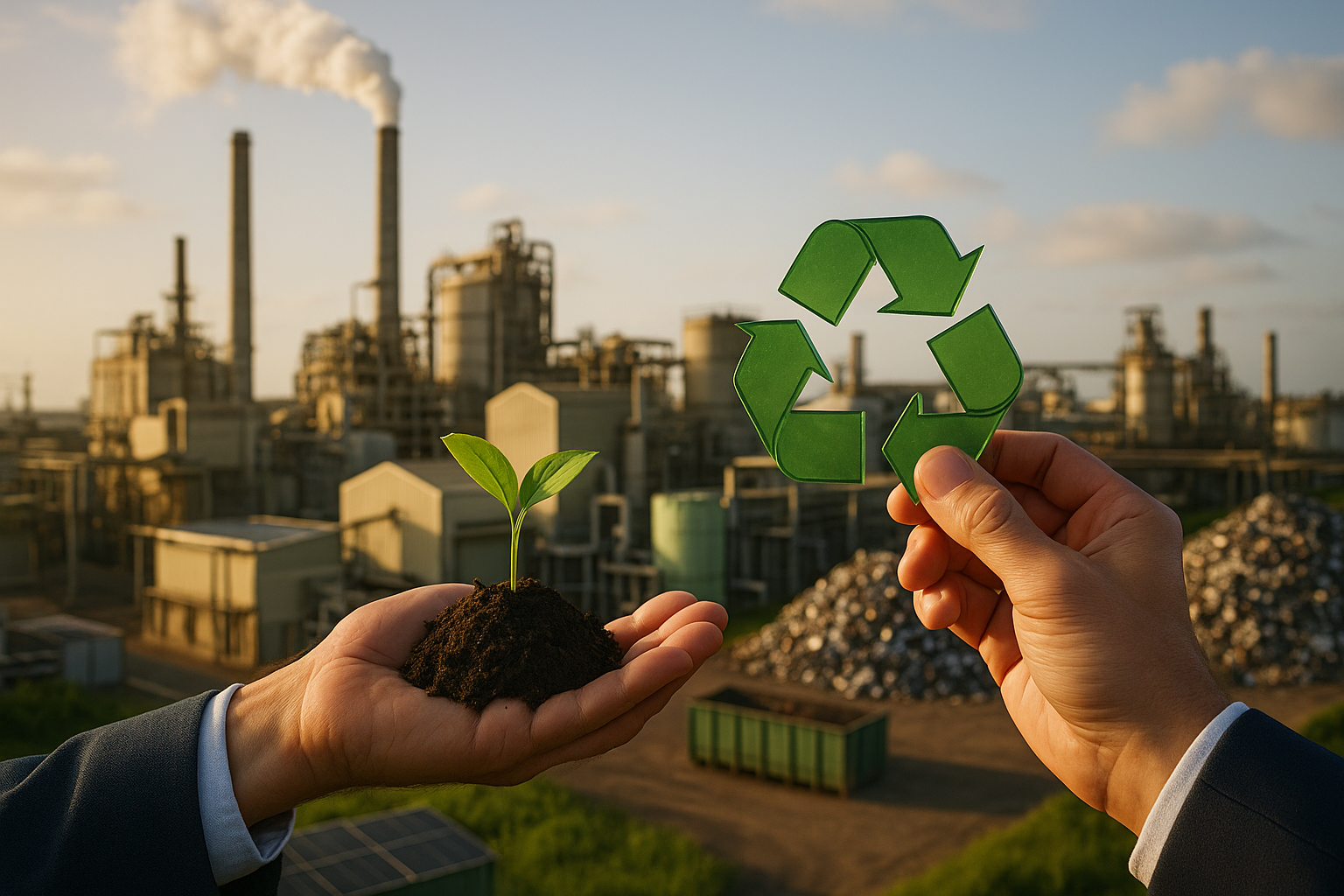Recycling Plant Jobs: A Sustainable Opportunity with Practical Benefits
Recycling plant jobs offer a way to contribute to environmental efforts while gaining practical work experience. Many people explore this field for its stability, clear tasks, and the chance to make a positive impact. Learn more about what to expect and why others consider this opportunity. Discover more in this article.

What types of jobs are available in recycling plants?
Recycling facilities offer a diverse range of employment opportunities across various skill levels and areas of expertise. Some common positions include:
-
Sorters and Material Handlers: These entry-level roles involve separating recyclable materials and operating machinery to process items.
-
Equipment Operators: Workers in these positions run specialized recycling machinery like balers, shredders, and conveyor systems.
-
Maintenance Technicians: These skilled workers keep recycling equipment in good working order through repairs and preventative maintenance.
-
Quality Control Inspectors: QC staff ensure that processed materials meet required standards for purity and contamination levels.
-
Logistics Coordinators: These professionals manage the transportation and distribution of recycled materials.
-
Environmental Compliance Specialists: These roles focus on ensuring the facility adheres to environmental regulations and safety standards.
-
Plant Managers: Senior positions overseeing the entire recycling facility’s operations and staff.
What qualifications are typically required for recycling industry roles?
The qualifications needed for recycling plant jobs vary depending on the specific position and level of responsibility. Here are some general guidelines:
-
Entry-level positions: High school diploma or equivalent; physical fitness and ability to lift heavy objects often required.
-
Equipment operators: High school diploma, plus relevant certifications (e.g., forklift operation); prior experience may be preferred.
-
Maintenance roles: Technical or vocational training in mechanics, electronics, or related fields; certifications may be required.
-
Specialized positions (e.g., environmental compliance): Bachelor’s degree in environmental science, engineering, or a related field; relevant certifications may be necessary.
-
Management roles: Bachelor’s degree in business, environmental management, or a related field; several years of industry experience typically required.
It’s important to note that specific requirements can vary by employer and location. Job seekers should carefully review individual job postings for precise qualification details.
What are the potential benefits of working in a recycling plant?
Pursuing a career in the recycling industry can offer several advantages:
-
Environmental impact: Employees directly contribute to reducing waste and conserving resources.
-
Job stability: As sustainability efforts increase globally, the demand for recycling services is likely to grow.
-
Skill development: Workers can gain valuable technical and operational skills applicable to various industries.
-
Career advancement: Many recycling plants offer opportunities for internal promotion and skill progression.
-
Community involvement: Recycling facilities often play an important role in local environmental initiatives.
What challenges might recycling plant workers face?
While recycling plant jobs offer many benefits, it’s important to consider potential challenges:
-
Physical demands: Many positions involve standing for long periods, lifting heavy objects, and working in varying environmental conditions.
-
Safety considerations: Recycling plants can present hazards such as moving machinery and exposure to certain materials.
-
Shift work: Some facilities operate 24/7, requiring employees to work non-standard hours or rotating shifts.
-
Adaptability: The recycling industry evolves with new technologies and regulations, requiring ongoing learning and flexibility.
How does the recycling industry contribute to sustainable work opportunities?
The recycling sector plays a significant role in the broader sustainability landscape:
-
Green job creation: As countries emphasize circular economies, recycling plants contribute to the growth of environmental employment.
-
Resource conservation: By processing recyclable materials, the industry helps reduce reliance on raw material extraction.
-
Innovation: Recycling plants often drive advancements in material processing and waste reduction technologies.
-
Community education: Many facilities engage in public outreach, promoting environmental awareness and responsible consumption.
What is the general outlook for recycling plant jobs?
The recycling industry’s future appears promising, with potential for continued growth and evolving career opportunities. Factors influencing the sector include:
-
Increasing global emphasis on sustainability and circular economy principles
-
Technological advancements in recycling processes and equipment
-
Growing consumer awareness and demand for eco-friendly products and packaging
-
Government regulations promoting recycling and waste reduction
While specific job availability and industry growth can vary by region and economic conditions, the overall trend suggests a positive outlook for recycling-related careers.
It’s important to note that this article provides general information about recycling plant jobs and the recycling industry. It does not represent specific job listings or guarantee employment opportunities. Job seekers should conduct their own research and consult local resources for current job openings and precise requirements in their area.
Regarding salary information, compensation for recycling plant jobs can vary widely based on factors such as position, experience level, location, and individual employer. As this article targets a worldwide audience, providing specific salary ranges would not be appropriate or accurate for all regions. Job seekers are encouraged to research salary data relevant to their specific location and consult local job market resources for the most accurate and up-to-date compensation information.
In conclusion, recycling plant jobs offer a unique opportunity to contribute to environmental conservation while developing practical skills and building a career. By understanding the types of roles available, required qualifications, and industry outlook, individuals can make informed decisions about pursuing opportunities in this growing and important field.




